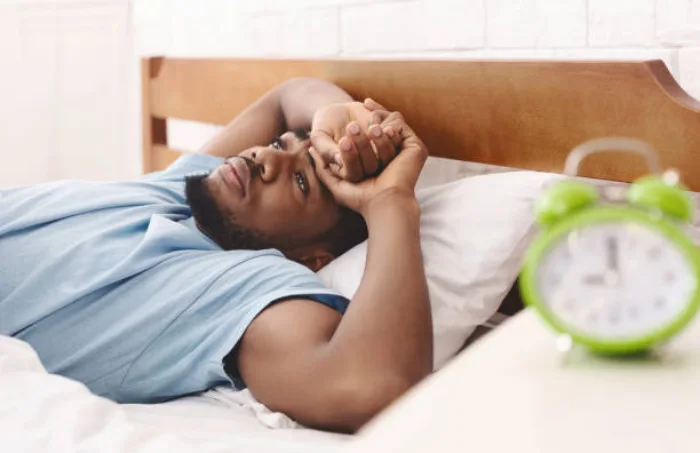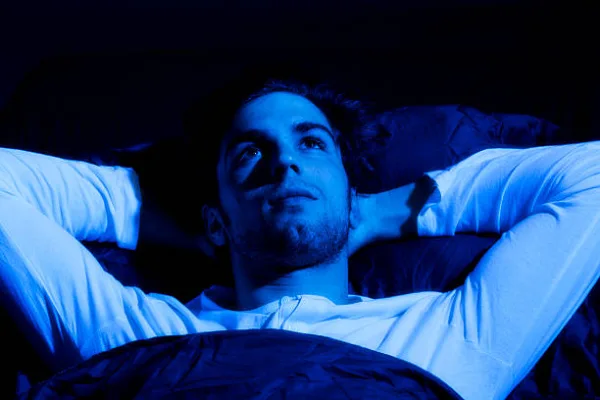Too Many Requests from Your Network
Please complete verification to access this content.
This article aims to provide a comprehensive understanding of the phenomenon wherein individuals wake up every night between 2am and 4am. Drawing upon scientific research and evidence-based knowledge in the field of sleep medicine, this article will explore the underlying factors that disrupt sleep during this specific time window.
Additionally, strategies to improve sleep quality and duration will be discussed, along with suggestions for seeking professional help in cases of persistent sleep issues. By addressing these topics, readers will gain valuable information regarding potential causes, symptoms, and solutions related to their disrupted sleep patterns during the 2am-4am period.
The Science Behind Sleep Patterns
The current subtopic of this discussion focuses on the scientific explanation behind sleep patterns. Sleep is a complex physiological process that is essential for overall health and well-being. Various factors can affect sleep patterns, including sleep deprivation and exposure to blue light.
Sleep deprivation refers to a condition where an individual consistently gets insufficient sleep, leading to daytime fatigue and impaired cognitive function. Blue light, emitted by electronic devices such as smartphones and computers, can disrupt the body’s natural sleep-wake cycle by suppressing the production of melatonin, a hormone responsible for regulating sleep.
This disruption can result in difficulty falling asleep or waking up during the night. Understanding these factors can help individuals make lifestyle changes that promote better sleep hygiene, such as limiting screen time before bed or using blue-light-blocking glasses to mitigate the effects of blue light on sleep quality.
Understanding the Body’s Circadian Rhythm
Understanding the body’s circadian rhythm involves comprehending the natural biological processes that regulate sleep-wake cycles. The body’s internal clock, located in the suprachiasmatic nucleus of the brain, plays a crucial role in maintaining this rhythm. It is influenced by external cues such as light and temperature, which help synchronize it with the 24-hour day-night cycle.
Disruptions to this rhythm can occur due to various factors, including shift work. Shift work often requires individuals to be awake during their typical sleep period, leading to a misalignment between their internal clock and external environment. This can result in difficulty falling asleep or staying asleep during regular sleeping hours, causing frequent awakenings between 2 am and 4 am.
Understanding these effects of shift work on the circadian rhythm is essential for identifying potential causes and implementing appropriate treatment strategies for individuals experiencing disrupted sleep patterns at night.
Factors That Disrupt Sleep During the 2am-4am Window
Disruptions to the body’s circadian rhythm, such as those caused by shift work, can lead to difficulties in maintaining sleep patterns between the hours of 2 am and 4 am. There are several common causes for waking up every night during this time frame.
One possible cause is insomnia, a sleep disorder characterized by difficulty falling asleep or staying asleep. Another potential cause is sleep apnea, a condition where breathing repeatedly stops and starts during sleep. Additionally, anxiety or stress can contribute to disrupted sleep patterns during this window.
To manage these disruptions, it is important to establish a consistent bedtime routine and create a relaxing environment conducive to sleep. Avoiding caffeine and electronic devices before bed can also be helpful. Seeking medical evaluation from a sleep specialist may provide further insight into the underlying causes and appropriate treatment options for individuals experiencing frequent awakenings between 2 am and 4 am.
Strategies to Improve Sleep Quality and Duration
To enhance the quality and duration of sleep, implementing effective strategies is crucial.
Sleep hygiene practices play a significant role in improving sleep quality. These practices include maintaining a consistent sleep schedule, creating a comfortable sleep environment, avoiding stimulants before bed, and engaging in relaxation techniques to reduce stress and promote relaxation.
Additionally, incorporating natural remedies for better sleep can be beneficial. Certain herbs like valerian root and chamomile have been shown to have sedative effects and promote better sleep. Melatonin supplements may also help regulate the body’s internal clock and improve sleep onset and maintenance.
Cognitive-behavioral therapy for insomnia (CBT-I) is another evidence-based approach that targets maladaptive thoughts and behaviors surrounding sleep. CBT-I focuses on restructuring negative thought patterns, implementing relaxation techniques, and establishing consistent bedtime routines.
Seeking Professional Help for Persistent Sleep Issues
Seeking professional help for persistent sleep issues can provide individuals with effective interventions and support to improve their sleep quality and duration. Sleep disorders can significantly impact an individual’s ability to fall asleep, stay asleep, or achieve restorative sleep. Waking up every night between 2am and 4am is a common complaint among individuals experiencing sleep disturbances. This pattern can be indicative of various sleep disorders, such as insomnia, sleep apnea, or restless legs syndrome.
A medical sleep specialist or a sleep disorders specialist can conduct a comprehensive evaluation to determine the underlying cause of this specific symptom. Treatment options may include cognitive-behavioral therapy for insomnia (CBT-I), continuous positive airway pressure (CPAP) therapy for obstructive sleep apnea, or medication management for certain conditions. Sleep therapy techniques may also be recommended to promote better sleep hygiene and relaxation practices.
Seeking professional help offers valuable insights into the diagnosis and management of these troubling symptoms, providing individuals with the opportunity to achieve restful and uninterrupted nights of sleep.
Frequently Asked Questions
What Are Some Common Sleep Disorders That Can Cause Waking up Between 2am-4am?
Several common sleep disorders, such as insomnia, sleep apnea, and restless leg syndrome, can cause waking up between 2am-4am. These conditions may be influenced by stress and have negative effects on overall health and well-being.
How Long Does It Typically Take for the Body to Adjust to a New Sleep Schedule?
The time it takes for the body to adjust to a new sleep schedule varies depending on individual factors such as age, lifestyle, and overall health. Sleep deprivation can have negative effects on cognitive function and overall well-being.
Can Certain Medications or Substances Contribute to Waking up During the 2am-4am Window?
Medication side effects and certain substances can contribute to sleep disruption during the 2am-4am window. These disruptions may be caused by stimulant medications, caffeine, nicotine, or alcohol consumption, which can interfere with sleep quality and maintenance.
Are There Any Natural Remedies or Lifestyle Changes That Can Help Prevent Waking up Between 2am-4am?
Dietary changes can affect sleep patterns, and stress and anxiety may impact sleep quality. Exploring natural remedies or lifestyle changes, such as relaxation techniques or improving sleep hygiene, could potentially prevent waking up between 2am-4am.
Is It Normal to Experience Vivid Dreams or Nightmares During This Time Period?
The experience of vivid dreams or nightmares during the time period between 2am and 4am is a topic of interest in sleep research. Understanding the interpretation of these dreams and their association with sleep deprivation requires further investigation.







